Why Microsoft's Activision Blizzard Acquisition Is Such A Big Deal
It's been a big Tuesday for the game industry. This morning, Microsoft announced that it has entered a deal to purchase Activision Blizzard, the largest third-party games publisher in the world. Microsoft is paying nearly $70 billion for Activision Blizzard, making the $7.5 billion it paid for ZeniMax Media and its subsidiaries a year ago look like a paltry sum.
Microsoft makes an acquisition Sony couldn't
This acquisition is shocking to most primarily because of the price tag attached to Activision Blizzard. At $68.7 billion, this is the largest acquisition the gaming world has ever seen by a long shot. Not only that, but it's up there with some of the biggest acquisitions across all industries.
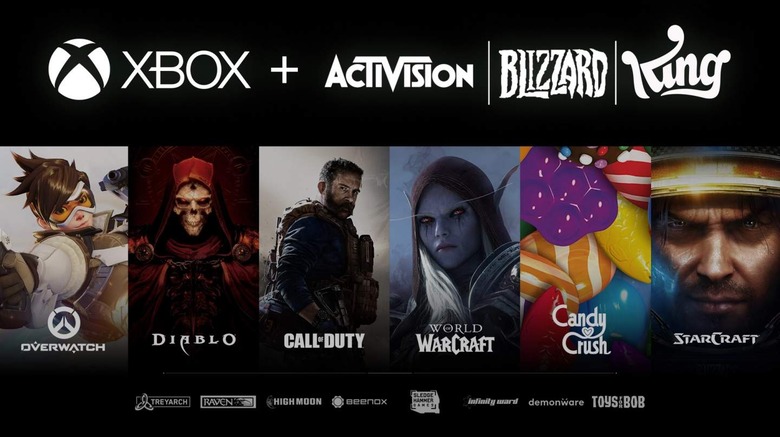
This also seems like an acquisition that only Microsoft could have made. Sony Group Corporation, as a conglomerate, has a total market cap of $156.64 billion, while Nintendo has a market cap of 6.94 trillion Japanese yen (about $60 billion). Microsoft, by comparison, has a market cap of $2.28 trillion (via Companies Market Cap), so while these three companies might be fierce competitors in the gaming space, Microsoft has way more money at its disposal than either Sony or Nintendo do.
While Sony and Nintendo have enough to possibly buy another major publisher with a lower value, Microsoft is really the only one that could shell out a sum like $68.9 billion for Activision Blizzard. Microsoft is throwing its resources around with this acquisition, as it's making deals that its biggest competitors can't hope to match.
Activision Blizzard comes with a lot of subsidiaries
While Activision and Blizzard are big names themselves, those aren't the only two companies included in this deal. Like ZeniMax before it, Activision has collected a number of subsidiary studios throughout the years, and these are all included in the agreement with Microsoft. Activision's subsidiary studios that will now live under the Microsoft umbrella include Beenox, Demonware, Digital Legends, High Moon Studios, Infinity Ward, Radical Entertainment, Raven Software, Sledgehammer Games, Solid State, Toys for Bob, and Treyarch.
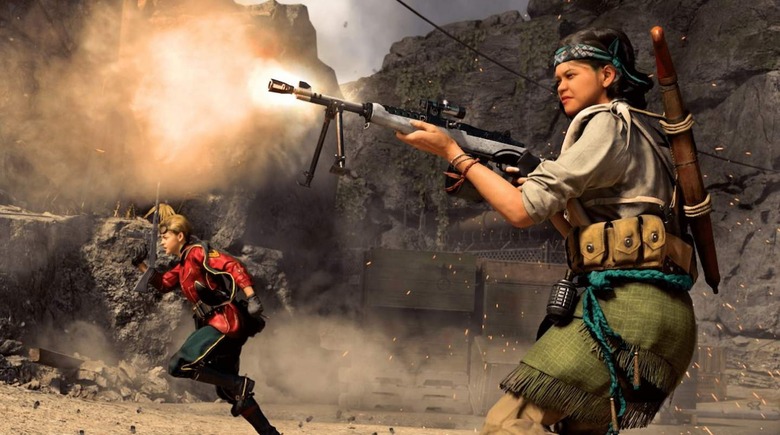
Some of these studios will be familiar to players already. For instance, Infinity Ward, Sledgehammer Games, and Treyarch are all high-profile studios working on the Call of Duty franchise (with help from studios like Raven Software), while Toys for Bob has taken the lead on Crash Bandicoot and Spyro games.
So even though Microsoft is already getting a lot when you consider Blizzard's library of games and the Call of Duty franchise, the company is getting a lot more than that through all of these subsidiary studios, as well. There are some big names attached to this buyout, and it'll be interesting to see how Microsoft utilizes these studios when the acquisition is complete.
A huge play for Xbox Game Pass
Of course, Microsoft's Activision Blizzard acquisition also means huge things for Xbox Game Pass. Microsoft has already indicated as much, revealing that Game Pass reached 25 million subscribers on January 18 alongside its announcement of this acquisition. As with all other first-party Microsoft games, we'll eventually see a bunch of Activision Blizzard titles land on Xbox Game Pass, as well.
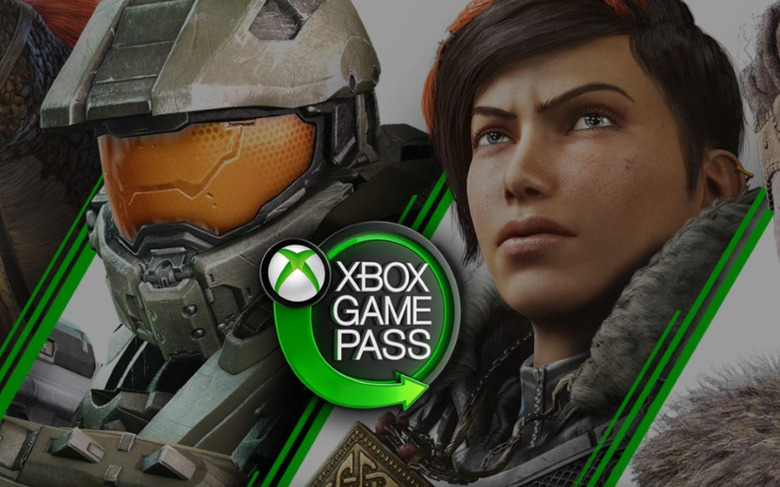
Not only will the latest Call of Duty be playable through Xbox Game Pass, but we wouldn't be surprised to see past Call of Duty games make their way to the service, too. Blizzard franchises like Hearthstone, Overwatch, Starcraft, Warcraft, and Diablo? All of those are likely destined for Game Pass. Microsoft may even opt to bring World of Warcraft to Xbox Game Pass, though that's pure speculation on our part.
The point is: if you thought we saw a big Xbox Game Pass content drop when the ZeniMax acquisition was completed and games from Bethesda, id Software, Tango Gameworks, and Machine Games appeared on the service simultaneously, we're probably in for something even bigger once the Activision Blizzard acquisition is finalized.
Of course, this acquisition isn't just about games, either. Microsoft very briefly mentioned that acquiring Activision Blizzard will "provide building blocks for the metaverse," without elaboration. While we'll have to wait to see what Microsoft's metaverse ambitions are, it's also worth taking a look at what the metaverse is in the first place.
A potential turnaround for Blizzard
It isn't controversial to say that Blizzard has gone through a long, painful fall from grace. Back in the 1990s and 2000s, Blizzard seemed unrivaled in the PC gaming space. Everything the studio made was super polished and fun, with games like Warcraft III, Starcraft II, World of Warcraft, and Diablo II defining their respective genres.
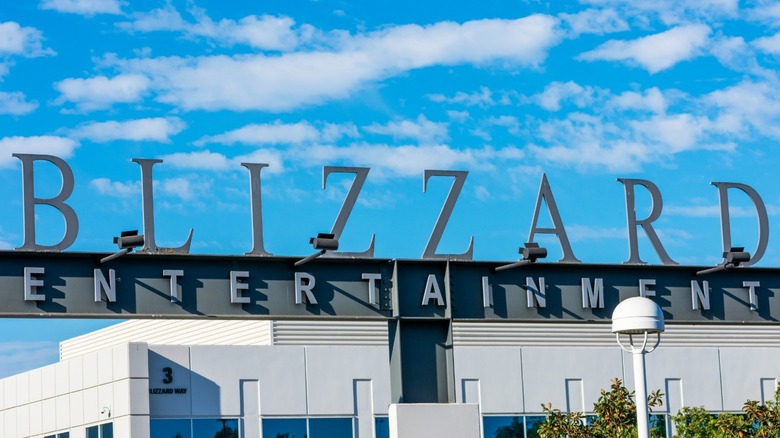
In recent years, the Blizzard we knew back then has vanished. These days, the developer is more known for remastering its classic games – to varying degrees of success – rather than releasing new ones. Blizzard has also found itself in the middle of considerable controversy, whether it was the non-apology it issued in response to banning Hearthstone players for voicing support for Hong Kong or deciding to cancel its Heroes of the Storm pro league just a couple of weeks before Christmas, pulling the rug out from under nearly everyone involved in the process.
While modern-day Blizzard has had a couple of hits in Hearthstone and Overwatch, the company definitely is not the same as it used to be. Perhaps Phil Spencer and his team at Microsoft can turn things around and restore Blizzard to its former glory? It'll take a lot of work, but we're hopeful this downward spiral will finally cease.
A fresh start for rightfully angry employees?
2021 was a wild year for Activision Blizzard. The State of California's Department of Fair Employment and Housing filed a lawsuit (via About Law) alleging a culture of "constant sexual harassment" at the company. Activision Blizzard executives didn't have the best response either, and later reports even alleged that Activision Blizzard CEO Bobby Kotick knew of the issues for years.
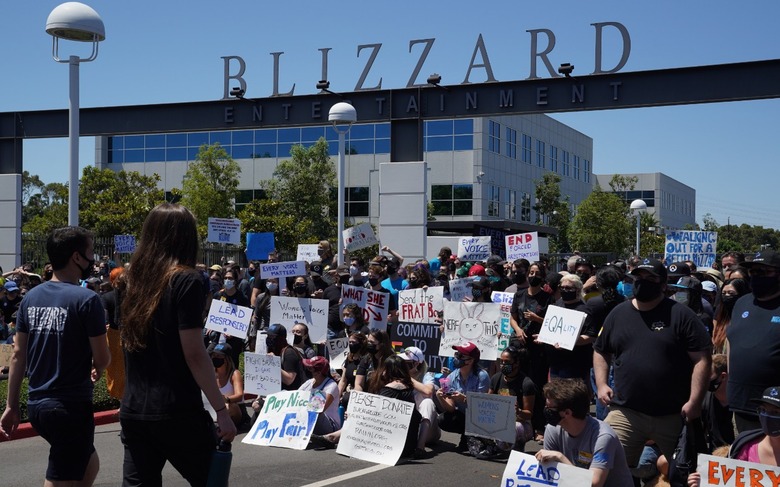
While a number of executives have departed the company, including former Blizzard president J. Allen Brack, Bobby Kotick remains despite the allegations against him. While he'll remain the CEO of Activision Blizzard until the acquisition is complete, his role post-acquisition is less clear. However, a report from the Wall Street Journal today claims that Kotick will be departing the company once the acquisition completes.
Even if he isn't out, Phil Spencer made it clear today that Activision Blizzard will be under his leadership as the new CEO of Microsoft Gaming. For angry, upset, harassed, and abused employees who spent the better part of 2021 demanding better from their company, coming under new leadership at Microsoft could be a chance at a fresh start. Is Microsoft perfect? Definitely not, but we have a hard time imagining that Microsoft's leadership could be worse than that of Kotick and his subordinates after everything that's come to light.
